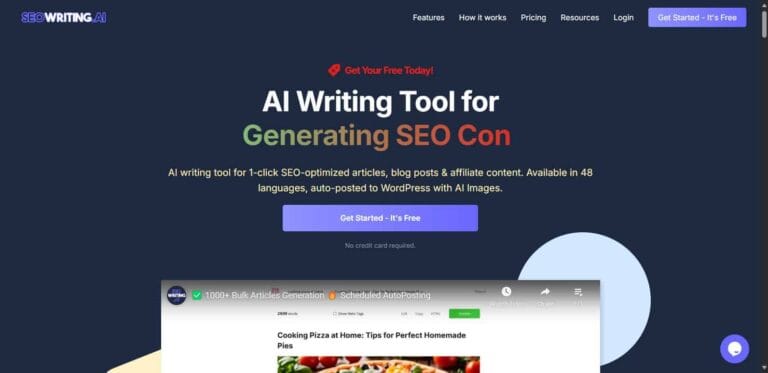
Understanding Your Needs
Before diving into the vast array of email marketing platforms, it’s crucial to define what your business needs from such a platform. Here are some key steps to help you make an informed decision:
Define Your Email Marketing Goals
Identify what you want to achieve through your email marketing campaigns. Are you looking to build and grow your email list, engage with your audience, automate your campaigns, improve open and click-through rates, drive sales and conversions, or maintain strong customer relationships? Knowing your goals will guide you in selecting the best platform for your needs.
Determine Your Email Volume
Calculate the volume of emails you plan to send. This will help you choose a platform that can handle your email traffic without breaking the bank or compromising on performance.
Consider Technical Features and Benefits
Evaluate the technical features and benefits each platform offers. Look for features such as email design capabilities, automation tools, analytics, and integration with your other customer data sources. Ensure the platform can meet your objectives and is scalable to grow with your business.
Assess User Interface and Ease of Use
Review how easy it is to use the platform day-to-day. Consider the user interface, customer support, and the resources required to manage the platform effectively. A user-friendly interface and robust customer support can make a significant difference in your email marketing efforts.
Key Features to Look For
When choosing an email marketing platform, several key features should be at the top of your list:
Automation Capabilities
Look for platforms with robust automation features such as drip campaigns and transactional emails. Automation can save time and streamline your marketing efforts, especially as your business grows.
Personalization and Segmentation
Features that allow for personalized email content and advanced segmentation are essential. Platforms like Klaviyo and HubSpot offer dynamic content and hyper-personalization options, helping you send the right message to the right people at the right time.
Analytics and Reporting
Detailed analytics on open rates, click-through rates, and other metrics are vital for improving future marketing emails. Ensure the platform provides comprehensive reporting tools and A/B testing options to refine your strategy.
Design Capabilities
The ability to design professional-looking emails that are optimized for both mobile and desktop is crucial. Look for platforms with easy-to-use design tools and templates.
Integration with Other Tools
Ensure the platform integrates seamlessly with your other marketing tools, such as your website, social media, and CRM systems. This integration can enhance your marketing funnel and provide a comprehensive view of your customer interactions.
Compliance with Regulations
Make sure the platform helps you comply with regulations such as GDPR. Features like opt-in management and easy unsubscribe options are essential to avoid legal issues.
Comparing Popular Email Marketing Platforms
Here’s a comparison of some popular email marketing platforms to help you make an informed decision:
| Platform | Key Features | Cost | Scalability | Customer Support |
|---|---|---|---|---|
| Mailchimp | Easy-to-use interface, automation, segmentation, analytics | Free plan available, paid plans start at $11/month | Good for small to medium-sized businesses | 24/7 customer support |
| HubSpot | Advanced automation, CRM integration, smart send feature, comprehensive analytics | Start at $50/month for the Marketing Hub | Highly scalable, suitable for large businesses | Excellent customer support with live chat |
| Klaviyo | Hyper-personalization, advanced segmentation, marketing automation, omnichannel capabilities | Start at $25/month | Highly scalable, ideal for e-commerce businesses | Strong customer support with live chat and email |
| Constant Contact | Easy-to-use interface, email design tools, contact management, analytics | Start at $9.99/month | Good for small to medium-sized businesses | 24/7 customer support |
| ActiveCampaign | Advanced automation, CRM integration, segmentation, analytics | Start at $9/month | Highly scalable, suitable for businesses of all sizes | Excellent customer support with live chat |
Cost Considerations
Cost is a significant factor when choosing an email marketing platform. Here are some points to consider:
- Free Trials and Plans: Some platforms offer free trials or free plans, especially for smaller organizations. This can be a great way to test the platform before committing to a paid plan.
- Monthly or Yearly Fees: Understand the pricing structure and whether it aligns with your budget. Some platforms charge based on the number of contacts or emails sent, while others offer flat monthly fees.
- Additional Features: Be aware of any additional costs for extra features or integrations. Ensure these costs fit within your budget and are necessary for your marketing goals.
Scalability and Growth
As your business grows, your email marketing platform needs to grow with you. Here are some considerations:
- Handling Increased Email Volume: Ensure the platform can handle the volume of emails you plan to send without any performance issues.
- Advanced Features: Look for platforms that offer advanced features like content personalization and sophisticated automation as your marketing campaigns become more complex.
- Integration Capabilities: The platform should be able to integrate with other tools and systems as your business expands, providing a seamless marketing infrastructure.
Customer Support
Good customer support is crucial, especially as your marketing automation campaigns become more complex:
- Live Chat and Email Support: Opt for platforms that offer live chat and 24/7 email support to ensure quick resolution of any issues that may arise.
- Technical Support: Ensure the platform provides robust technical support to handle any campaign or automation bugs, service outages, or integration problems.
Table: Comparison of Key Features
Here is a detailed table comparing some of the key features of popular email marketing platforms:
| Feature | Mailchimp | HubSpot | Klaviyo | Constant Contact | ActiveCampaign |
|---|---|---|---|---|---|
| Automation | Basic automation | Advanced automation | Hyper-personalization and automation | Basic automation | Advanced automation |
| Segmentation | Basic segmentation | Advanced segmentation with CRM | Advanced segmentation with predictive analytics | Basic segmentation | Advanced segmentation |
| Analytics | Basic analytics | Comprehensive analytics with A/B testing | Detailed analytics with A/B testing | Basic analytics | Comprehensive analytics with A/B testing |
| Design Capabilities | Easy-to-use design tools | Advanced design tools with templates | Advanced design tools with templates | Easy-to-use design tools | Advanced design tools with templates |
| Integration | Integrates with basic tools | Integrates with CRM, website, and other HubSpot hubs | Integrates with e-commerce platforms, CRM, and social media | Integrates with basic tools | Integrates with CRM, website, and other advanced tools |
| Compliance | GDPR compliance tools | GDPR compliance tools with opt-in management | GDPR compliance tools with opt-in management | GDPR compliance tools | GDPR compliance tools with opt-in management |
| Cost | Free plan, paid plans start at $11/month | Start at $50/month | Start at $25/month | Start at $9.99/month | Start at $9/month |
| Scalability | Good for small to medium-sized businesses | Highly scalable | Highly scalable | Good for small to medium-sized businesses | Highly scalable |
| Customer Support | 24/7 customer support | Excellent customer support with live chat | Strong customer support with live chat and email | 24/7 customer support | Excellent customer support with live chat |
By carefully evaluating these factors and comparing the features of different platforms, you can make an informed decision that aligns with your business goals and ensures the success of your email marketing campaigns.




